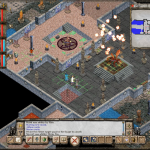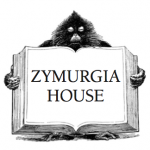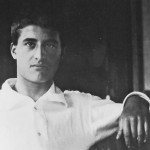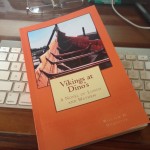So I was wondering what to say about writing today, beyond that it was a busy weekend and Watchman for Daybreak is only 1,000 words longer, when I saw Elizabeth Duffy’s post this morning and said, “A writing meme! I can do that!”
So, four questions:
- What are you working on?
- What makes your work different from others’ work in the same genre?
- Why do you write what you do?
- How does your writing process work?
1. What are you working on?
At the moment, mostly Watchman for Daybreak, a novel about the founding of S’Mary’s World; but I’m also collecting up all of the material I’m currently writing about Thomas Aquinas and his philosophy and theology, and who knows? That might turn into a book as well. And some day Real Soon Now I need to make my previous novel, Vikings at Dino’s, available to my possibly adoring fans. Oh, and the blog. And a day job. And RCIA. And my family. (These are not in priority order.) And getting enough sleep; that’s a hard one.
2. What makes your work different from others’ work in the same genre?
I’m weird.
But seriously…. I’ve always been a reader of science fiction and fantasy, and it’s fantasy that I naturally gravitate towards as a writer. But I’ve got a very broad notion of the fantasy genre, and I’ve got no desire at all to write one more Tolkien clone or to try to beat Brandon Sanderson (to name a current favorite) at his own game. If I’m writing something, it’s because the idea intrigues me, and I want to see where it goes; and if I already know where it goes because twenty other writers have taken it to the same place, that’s no fun.
I can’t promise that my work is entirely unlike everyone else’s, because I haven’t read everyone else’s. But while I have lots of influences, I’m not aware of hewing too closely to any other writer’s line.
3. Why do you write what you do?
To rationalize new hardware purchases.
I’m only half joking. Vikings at Dinos got written because I had just gotten an iPad, and I was sitting at a local burger joint with a book and the iPad and thought, “You know, I could start writing a book right here.” This led to a bit of a scuffle.
“No, I don’t want to do that,” I thought. “If I get started, it’ll take forever to finish, and I won’t have time for other things.”
“Oh, but look,” I thought, “I’ve got everything I need right here!”
“No.”
“Well, but what if a horde of screaming vikings burst in the from the parking lot, and started kicking butt and taking heads?”
“No—wait. Why would that happen?”
And then I was off, because the other reason is that I want to find out what happens, and the only way to do that is to write the darn thing.
4. How does your writing process work?
First I get an idea, and I carry it around in the back of my head. Ideas tend to pop out at me at odd moments: driving to and from work, in the shower, while going for a walk, and like that. I accumulate these, and sometimes I make some simple notes; but I never work out a scene in full detail until I’m ready to actually write it down, and I never talk about anything that isn’t written down yet.
Usually I leave the house to write. On a Saturday morning I’ll go back to that same burger joint and have breakfast, and then stay and write for a hour or two; or I’ll hit a coffee place while my daughter is at dance class, and buy a small cup of (black) coffee and write while I’m waiting. These days I’m writing on an iPad with a Logitech bluetooth keyboard. I compose in Textilus, and sync that with Scrivener.
I tend to revise as I go. I’ll write a scene, or part of a scene, during one session, and during my next session I’ll go back over it again and make changes and additions before going on to a new scene. My first drafts often lack a good sense of place, so I usually need to add more incidental description; and I often find that details that were clear in my head didn’t make it into pixels the first time.
Once a passage is written, I’ll often read it aloud to Jane; in my view, good prose flows off of the tongue when read aloud, and bad prose doesn’t. (This doesn’t mean that good prose is necessarily smooth; in a scene of violence, violent, choppy prose might be appropriate. But it will still read aloud well.)
I read every section of Vikings at Dino’s to Jane and my friend Ian as it was written, and made the necessary fixes; and then, when it was all done, I read it to my kids without telling them that I’d written it. Their first words when I was done: “Is there a sequel?” I said, “No, I haven’t written it yet,” and there was general disbelief.












